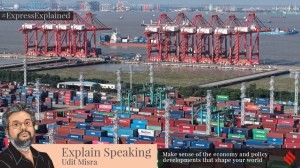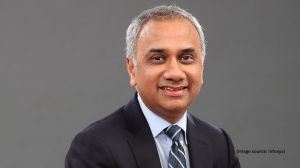Big spenders
Munde points to the problem in election financing. Attempts at reform have only intensified dishonesty
Munde points to the problem in election financing. Attempts at reform have only intensified dishonesty
A bit of candour has got BJP leader Gopinath Munde into trouble with the Election Commission. Speaking at a book release function in Mumbai last week,Munde recalled how he had spent Rs 8 crore in his last campaign,compared to Rs 29,000 at the start of his career in 1980. He added,cutely,that he hoped no Election Commission member was around to hear that disclosure. The EC is clearly not amused. It has asked Munde to explain within 20 days why his public statement contradicted his official declaration of 19.36 lakh,and why action should not be taken against him for exceeding the EC-prescribed limit for election spending.
The yawning,and growing,gap between official and actual election expenses is one of Indias worst-kept secrets. This is far from a unique predicament. The problems of party financing and political corruption,the distortions of big money and the interests they peddle,vex democracies around the world,to greater or lesser degrees. In India,attempts to fix the problem have often ended up exacerbating it. For instance,corporate donations were banned through the 70s,without providing for public funding. In combination with other licence-permit raj restrictions,it ensured that elections would be awash in black money. The reason why party finance reforms havent worked well could be a relentless and unrealistic focus on limiting expenditure,rather than aiding transparency. Parties are virtually encouraged to under-report their spending and to favour candidates who can raise their own resources both of which reinforce the dishonesty in the system. After a Supreme Court judgment in 1996,political parties are exempted from income and wealth taxes,but required to file audited annual accounts,and disclose the identities of all those who contribute more than Rs 20,000. Corporations have also been given tax deductions for donating by cheque. In the US,it is donations that are capped,rather than party expenditure. In Canada and Germany,the focus is on strict public disclosure,as well as greater state funding of elections.
The problem is well understood,but the solutions continue to be imperfect. The recent attempt to use the RTI to increase transparency in political parties is well intentioned,but it does not touch the sordid mechanics of party finance all the funny money in the system,the fact that businesses prefer anonymity to tax breaks because they often donate to many parties in return for their benevolence,that much of this giving and taking is driven underground. Dealing with murky electoral financing will ultimately need a deep cleansing,removing the reasons black money persists in many sectors like land and real estate,the collusion between political and business elites.
- 01
- 02
- 03
- 04
- 05































